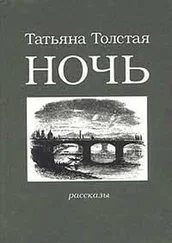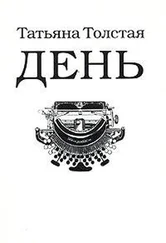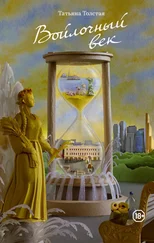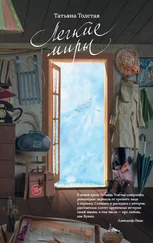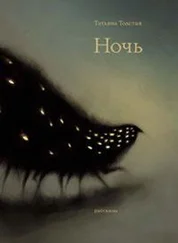Subtract from our culture the Roman and Gothic styles; subtract arches, vaulted structures, keystones; take away city planning, gardens, fountains, all European cities, castles, fortresses, spires, humpback bridges, colonnades and atriums; erase Saint Petersburg from the picture and shake its ashes from your hands as if it never existed. Send it all to hell in a handbasket. Off with the Renaissance. Giotto, Michelangelo, Raphael—shoo shoo shoo. Forget about pictorial art—it was but a dream. Down with opera, singing in general, just puncture your eardrums. Pour away the wine, you’ll be drinking barley hooch from now on.
Tear up Dante, erase the Mona Lisa, raze the Vatican to the ground. There are no Catholics, no popes, no antipopes, no cardinals, no religious hypocrites, no Galileo or Giordano Bruno and none of their tormentors, no Guelphs and Ghibellines; there’s no Western Roman Empire, and then no Eastern one, either, for there is no West. Absolutely no West at all. There are no brutal gladiators and no poisoning seductresses. There are no Seven Hills of Rome; the stripy Siena Cathedral does not exist; the blue expanse of Tuscany can’t be seen from any window. It’s not crimson bellicose Mars, not diamantine Venus up there in the sky.
Nothing, nothing exists—there is no pasta, no Fellini, no pizza, no bel canto, no Pinocchio, no Sophia Loren, no teary-eyed Maksim Gorky in Capri, no Cipollino the Onion Boy, no Neapolitan mastiffs, no Carrara marble, no carnivals, no pesto sauce, no Romeo and Juliet, no mozzarella, no cappuccino, no eruption of Mount Vesuvius, no perdition of Pompeii, no Italian mafia, no Italian fashion, no Mussolini, no Armani, no Pontius Pilate, no Benedicta tu in mulieribus, et benedictus fructus ventris tui, Jesus. The leaning tower of Pisa isn’t leaning; the sinking town of Venice isn’t sinking. There is no Catullus’s sparrow. There is no one to discover America. No one to build Moscow’s Kremlin.
Gogol has nowhere to run from the encroachment of Mirgorod, no sunny haven where he can lie supine, arms stretched out, gazing for hours into the blueness of the sky, purifying his dark, northern, frosty soul from the debris and detritus of his pale, sluggish, fat-assed homeland. “It’s mine! No one can take it away from me! I was born here. Russia, Saint Petersburg, the snow, the scoundrels, the office, the university, the theater—it was all but a dream! He who has been to Italy will say farewell to other lands. He who has been to heaven will not want to come down to earth…. Oh, Italy! Whose hand will pluck me from here? Oh, the sky! Oh, the days! It’s not quite summer and not quite spring, but better than any springs or summers that exist in other corners of the world. Oh, the air! I can’t stop drinking it in. There are skies and paradise in my soul.”
Without Italy, there are disputes in matters of taste. Money does stink. You can speak ill of the dead.
And all roads lead to nothing.
Faraway Lands
A letter from Crete to a friend in Moscow
Green clouds, the foul air of the fatherland, and especially its heart—Moscow—are behind us, and so here we are, giddy with joy and from lack of sleep, drinking ice-cold white wine and looking out at the sparkling desert of the sea, not caring to know anyone below Odysseus. And here is one, bringing us fried fish and tzatziki, as well as some horta (boiled bitter greens, in case someone forgot what horta are), and the pearly gates are once again open to us for two weeks. Perhaps we didn’t sin all that much in the previous year.
The role of gatekeeper this time was played by Aegean Airlines, which sold us tickets for a laughably small sum but omitted a caveat, and of course there was one. The night before our departure we got an email: Your flight is not tomorrow afternoon as you had hoped, dear passenger, but at six in the morning. And you’ll have a twelve-hour layover in Athens, with nowhere to lay your sleep-deprived head. Nothing to be done but sorrowfully sprinkle that head with ashes, throw some stuff into our suitcase, and race to the airport at three in the morning.
But somewhere along the way the Creator had mercy on us, and in Athens we were able to rebook our tickets for an earlier flight to Heraklion; not only did our luggage arrive safely, but we even got the rental car we’d reserved, although, as we arrived earlier than expected, the car wasn’t ready and there were still spiderwebs on the back seat, a visual manifestation of the ongoing European economic crisis.
The crisis was also evident at familiar places and store counters. The paucity of choices at the supermarket, the joy of the greengrocer on seeing us—he almost kissed me, touched by my repeat custom, and I left his shop weighed down by bags full of vegetables and oranges for only three and a half euros in total.
Our hotel was half empty: a handful of mothers with children under ten. Maybe the season hadn’t really started yet, but in years prior it was difficult to find a table with the view of wisteria. (Or was it jasmine? Palm trees? Rhododendron? Our friend Pasha would be appalled at my ignorance if he ever sobered up.) But now you can sit and peck at your paltry complimentary breakfast wherever you want: for instance, they rationed only one thinly sliced cucumber per meal. That is, one cucumber for all the hotel’s guests. Cross my heart. Fortunately, I had brought my own for dieting purposes, at a cost of seven or eight euro cents; and besides, I didn’t want to pilfer the provisions of the owners—stingy Stavros and his German wife. They also didn’t set out any boiled eggs—what if no one ate them?—but if you asked, they obliged. I got a whole egg, and had I asked for two, I would have gotten two: Come quick, dear friend, this is a land of plenty. “Live your myth in Greece.”
I’m sticking to my self-imposed Ramadan by eating canned turkey at night; I loathe it, and this particular brand has an unnatural look to it: petal-like pieces in some sort of preservative brine. But at least it’s not pork or garlicky salami, which we used to gorge on in our more zaftig days. There aren’t any Greek strawberries in the markets, they must all have gone to the markets of Moscow. Would a Frenchman eat truffles in lean times? No, he would sell them to a rich oil sheik instead.
Yesterday we went to a seafood place and ordered a whole platter of various fried fish. Twenty-nine euros for two, everything fresh out of the wine-dark sea. There were two sea breams, mother and daughter; a piece of swordfish; some sardines, which by default smelled of their wood-smoked fate; two unidentified fish; and a few giant prawns. All this was drizzled with lemon and delicious homemade olive oil—so long, diet—and garnished with green salad leaves. Turns out greens are yummy if they are fresh picked and not as they’re served in the Fatherland. They’re meant to be crunchy and not to sluggishly wrap around your teeth. Oh, there was also a side dish, but we, as you’ll understand, had to abstain. The side dish was rice.
—
Yesterday’s dinner meditations compared the behavior and motivations of a Russian to those of a European. Here is a classic theme: the drinking man. European literature, cinema, and anecdotal observations all paint the same picture: a lonely middle-aged soul in a bar, drinking alone but with dignity (which sometimes excuses his bluish nose, blotchy cheeks, trembling hands, and ancient scarf) at a table or at the counter, solitarily looking into his glass; if he does raise his eyes, perhaps only looking wistfully and forlornly like Pierrot, he doesn’t stare, doesn’t catcall, doesn’t grab anyone’s ass. He drinks slowly, staying past last call. He is contemplating his loneliness, we surmise, the meaninglessness of existence, the impossibility of emotional attachment, and the passing of the more-or-less good ol’ days. My poor old mother, ma pauvre vielle mère, as well as the long-gone young lady in white bloom. If he has a dog, it’s also as old as the sea, and he’s sure to bring it, as the dog is always allowed. Imagine! A dog allowed in a bar! Because European canines don’t jump up on people, tearing their pants and humping their leg—no, they lie under the table with toothless dignity and sightless wisdom, mirroring their owner’s quiet heartache. One of the best stories about this is Hemingway’s “A Clean Well-Lighted Place”—although there is no dog, the solitude is total and complete.
Читать дальше


